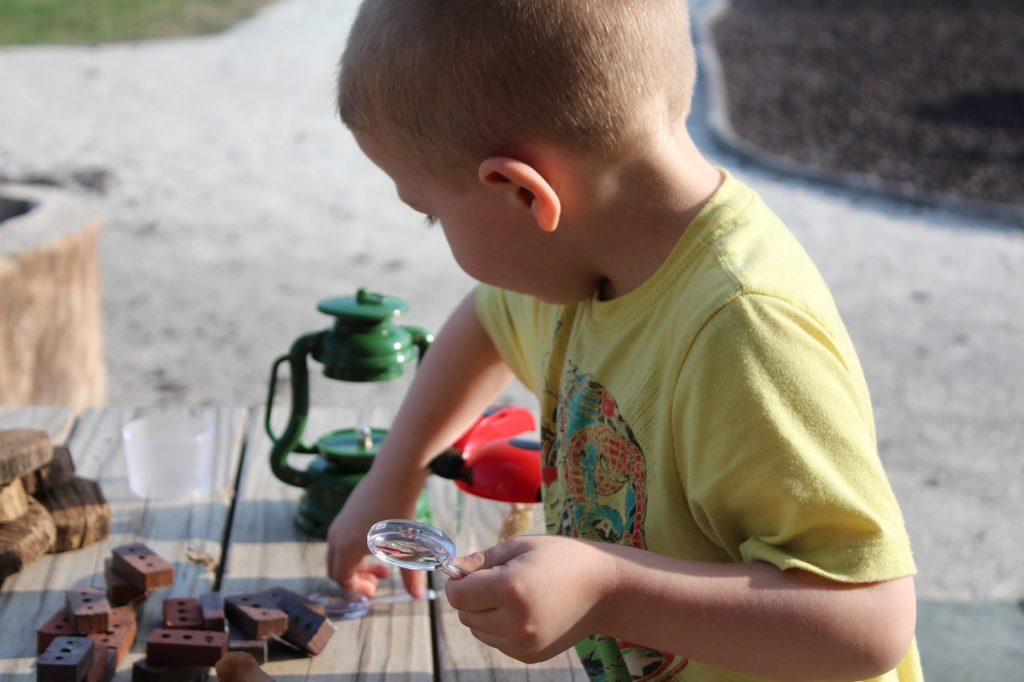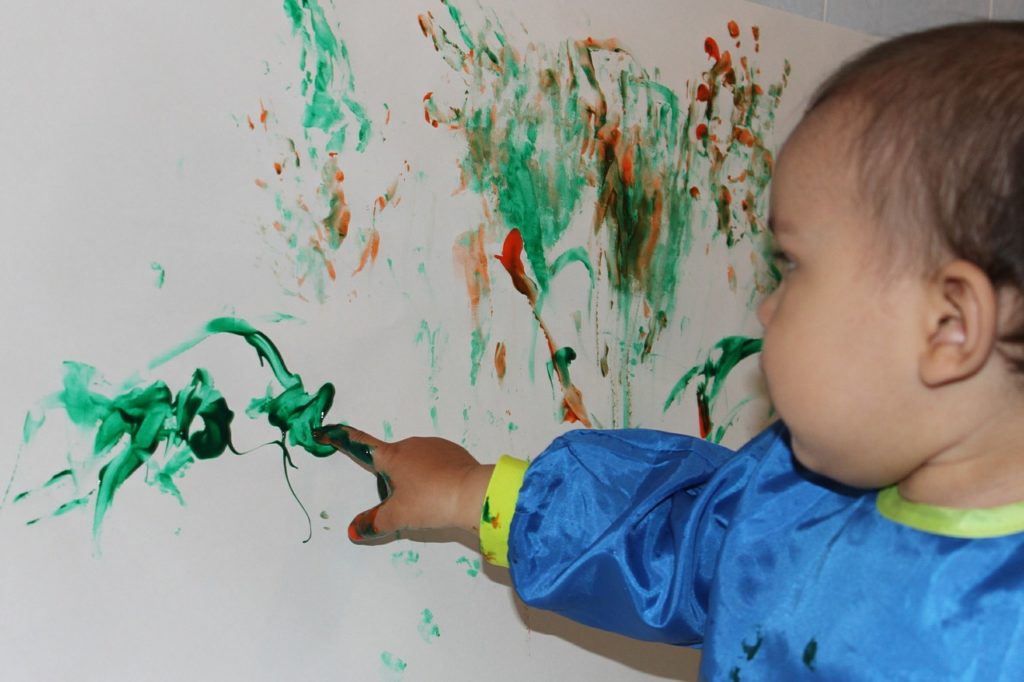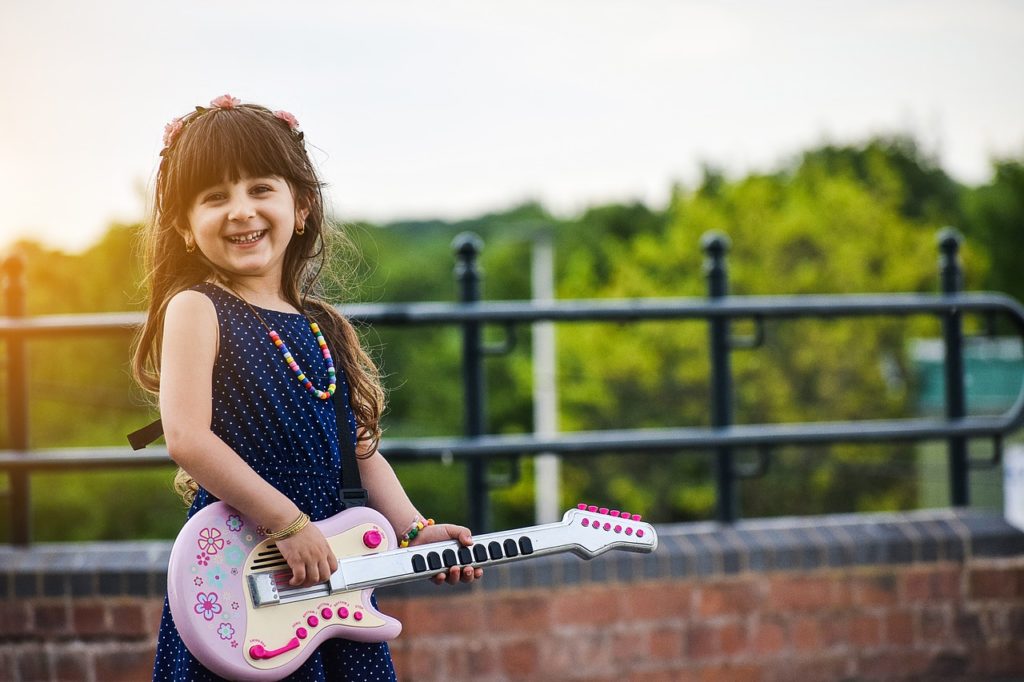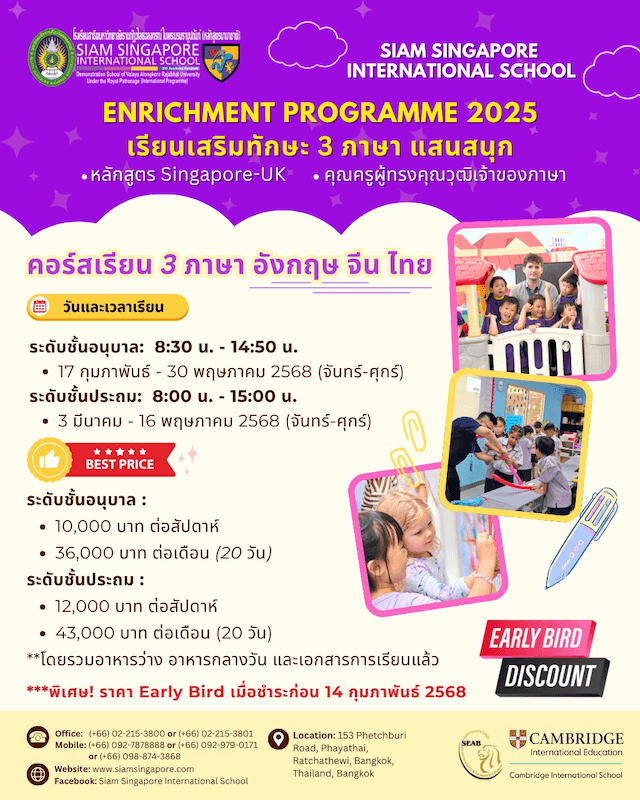Your child’s early years education is more than a preparation for primary school. It is a key time for the holistic development of a child’s social, emotional, cognitive and physical needs in order to create a solid and broad foundation for lifelong learning and wellbeing. It is throughout their early years where they establish an understanding of their world, social and language skills, and the ability to approach problems and work with others.
The early years foundation stage is catagorised from birth to 5 years old and much emphasis has been placed on the importance of learning through play. Lucky for us, Bangkok has an excellent choice of early years schools using and adapting different styles of curriculum allowing kids to learn through a playful fun experience.
Create and Explore

Playful learning enables young children to have a higher degree of autonomy and the ideology around play-based learning stems from encouraging young children to create and explore based on their own choices. This allows a child to decide what they want to do and how they want to spend their time. This encourages children’s natural play, exploration and activity based learning and the role of the adult or educator is merely to oversee and facilitate any activity. There are many different areas of ‘play’ that are explored within this ideology, all with benefits to the child and created to maximise what the child gains from the activity. Much of the play involved is sensory and improvisatory, engaging children to pursue their creative instincts and curiosity through uninhibited hands-on discovery.
Active Play
Active play fosters creativity and imagination and encourages pre-literacy skills, it appeals to children’s natural curiosity and a desire to engage in experiences based on their interests and strengths.
Messy Play

Messy play is creative, allowing children to explore their imagination and express feelings with anything from mud and paints to dried beans and playdough. Using materials with different textures can help children get used to different sensations.
Water Play
Water play encourages the development of eye/hand coordination through pouring, squeezing and squirting. It allows children to explore movement, sounds, and textures from water in its various forms.
Musical Play

Sound and music play involves listening to songs, singing, dancing with props, making music by hitting simple instruments or household objects and making discoveries about themselves and the world around them. It assists in developing a larger vocabulary and appreciation for music. Musical play has been determined as a vital component in building emotional intelligence. Music builds intimacy, in the same way lullabies south and relax babies, musical play can develop neural pathways necessary for listening and communicating and the ability to self-soothe.
Outdoor Play
Outdoor play supports children’s problem solving skills and nurtures their creativity and resourcefulness. This gives children an opportunity to interact with the elements around them in an outdoor environment. This can involve climbing trees and digging in the dirt, to growing food and and experiencing animals in their own surroundings and learning about their habitats and life cycles.
Creative Play
Creative play is a vital part of childhood and child development. Through using their imagination in different mediums they can explore their specific and unique qualities and develop skills to enable them to share their thoughts, feelings and ideas.
Be it an American, British or other curriculum, the learning of communication and language; personal, social and emotional development; literacy; maths; understanding the world; and expressive arts and design all revolve around playful exploration. Make the most of your child’s early years!















